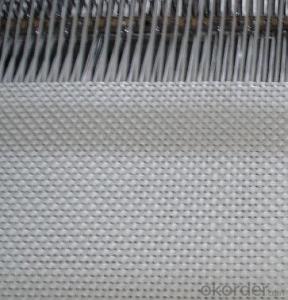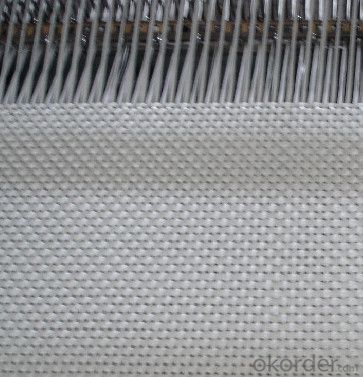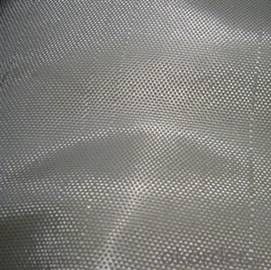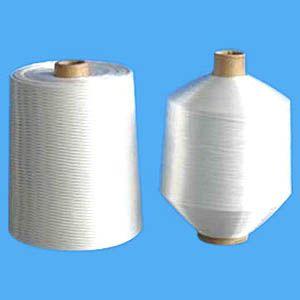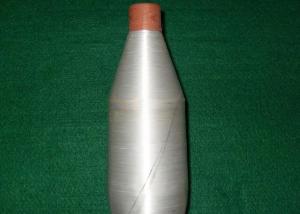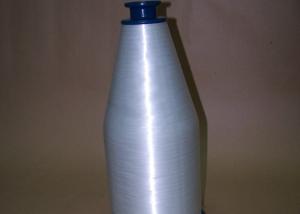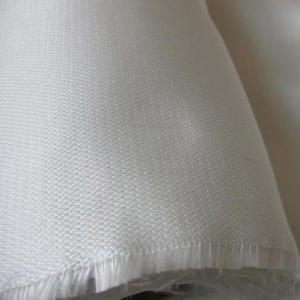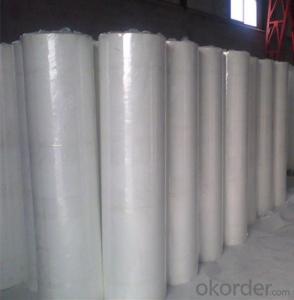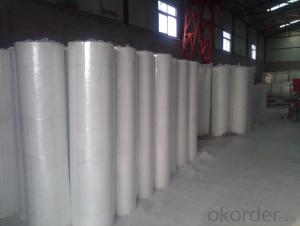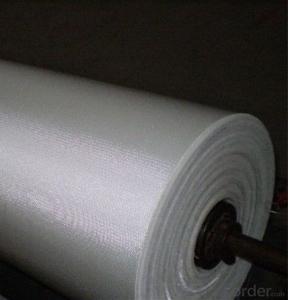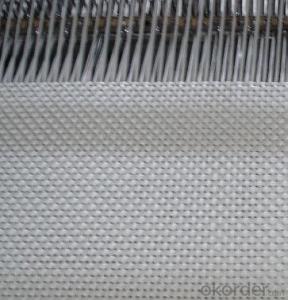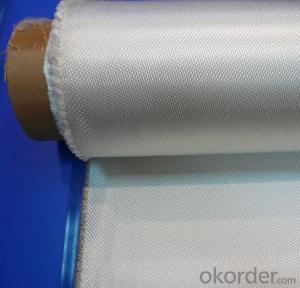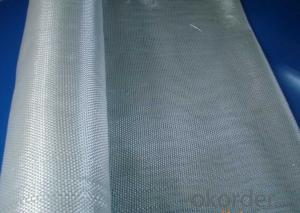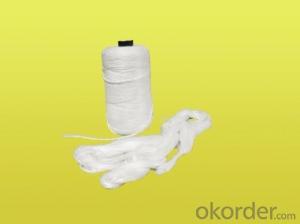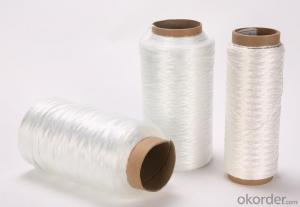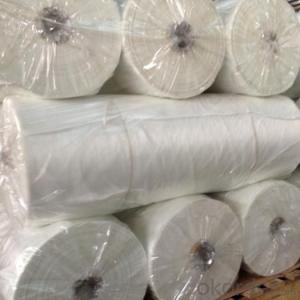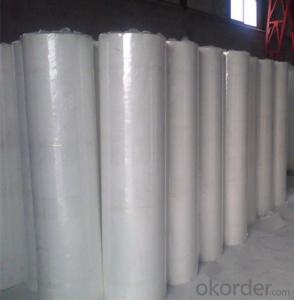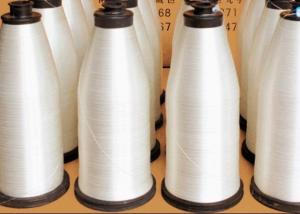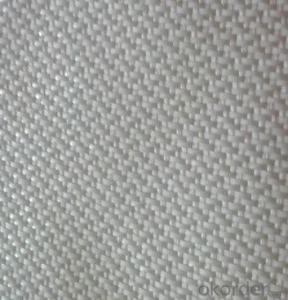Fiberglass Yarn - Flame-Resistant Fiberglass Fabric ISO9001
- Loading Port:
- Shanghai
- Payment Terms:
- TT OR LC
- Min Order Qty:
- 500 m²
- Supply Capability:
- 50000 m²/month
OKorder Service Pledge
OKorder Financial Service
You Might Also Like
Fiberglass Fabric of Excellent Flame-resisting ISO9001
Fiberglass Fabric Introduction:
Fiberglass fabric is weaved by high quality fiberglass,as a kind of engineering material,which is
many excellent characteristics:
flame-resisting,corrosion resistant,high strength,heat resistance.stable structure,good chemical resistance,durability.
Fiberglass Fabric Features:
Warp and weft yarns are parallel arrangement as flat situation, with uniform tension;
Fiber is aligned with large consistency, stable and easy operation;
Good moldability, fast and complete wet out in resins, resulting in high productivity;
Good transparency and high strength of composite products.
Fiberglass Fabric Specification:
mark | Fiber consistency(ends/ cm) |
Area weight (g/ m2) |
Thick-ness (mm) |
Width (cm) |
Length (mm) | Breaking strength(N)≥ |
weave | |||
Warp direction | Weft direction | Warp direction | Weft direction | |||||||
EW200 | 16 | 12 | 200±20 | 0.2 | 90-130 | 300-1200 | 980 | 980 | ||
EW210 | 16 | 12 | 200±20 | 0.21 | 90-130 | 300-1200 | 1080 | 1080 | Twill weave | |
Plain weave | ||||||||||
EWR360 | 3.2 | 1.8 | 354±18 | 0.35 | 50-300 | 100 | 2000 | 2000 | ||
EW280 | 16 | 10 | 280±28 | 0.26 | 90-130 | 300-1200 | 1800 | 1800 | ||
EW300 | 14 | 10 | 320±32 | 0.3 | 90-130 | 300-1200 | 1500 | 1500 | ||
EW430 | 20 | 12 | 420±42 | 0.43 | 90-130 | 300-1200 | 2000 | 2000 | Broken twill | |
EWR136 | 10 | 10 | 136±13 | 0.136 | 100 | 200 | 850 | 850 |
Plain weave | |
EWR200 | 8 | 7 | 200±20 | 0.21 | 100 | 200 | 1200 | 1200 | ||
EWR400 | 3.6 | 3.2 | 400±30 | 0.4 | 100 | 50-100 | 2500 | 2500 | ||
EWR600 | 2.6 | 2.5 | 600±50 | 0.6 | 100 | 40KG | 4000 | 4000 | ||
EWR580 | 2.5 | 2.3 | 576±29 | 0.58 | 100 | 40KG | 3850 | 3850 | ||
EWR800 | 1.8 | 1.8 | 800±60 | 0.8 | 100 | 40KG | 4600 | 4600 | ||
Product Show
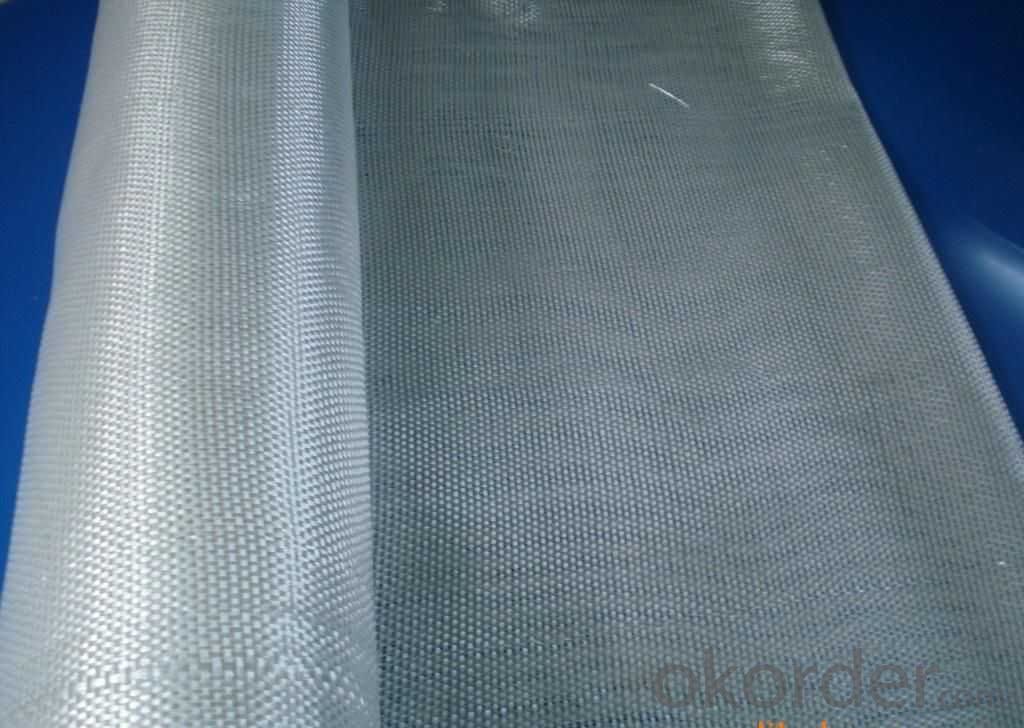
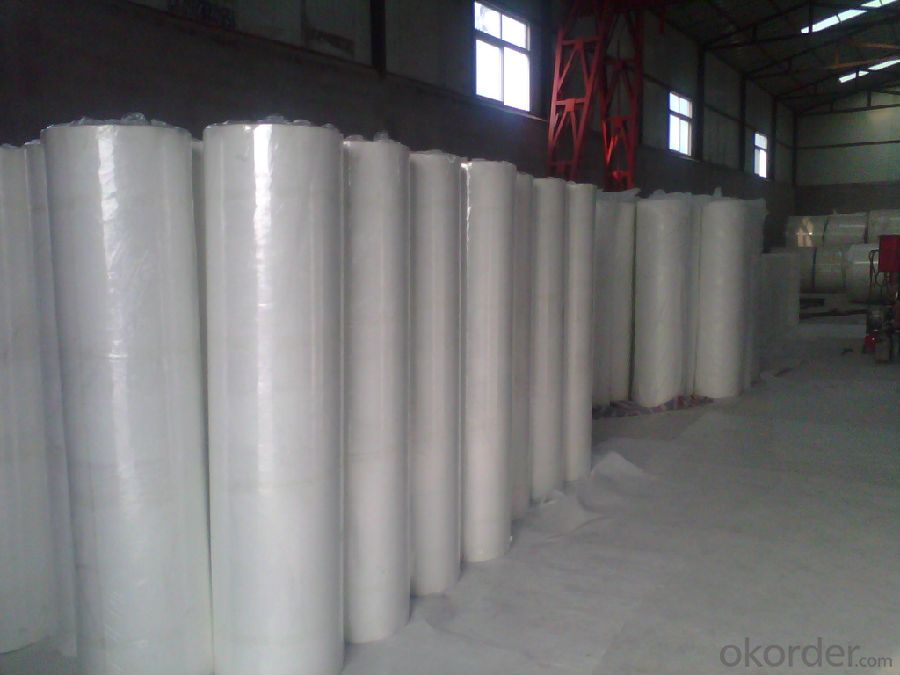
Fiberglass Fabric Usage:
E-glass woven roving is a schistose double faces reinforcement fabric that is weaved into from roving in directly.
E-glass fiber fabric (thin fabrics with thickness from 0.025 to 0.09mm) is suitable for electrical isolation mica product, wax cloth as the reinforcement materials.
E-glass woven roving applys to all kinds of polyester reinforcement system, (such as unsaturated polyester resin, vinylite,epoxy resin and phenolic resin.
E-glass woven roving is a high performance reinforcement material. It is widely used in hand lay-up and machinery processing products, (such as vessel, container, airplane and vehicle component, furniture, athletic facilities and other industry.
FAQ
1.Package of Fiberglass Fabric?
Fiberglass fabric is wound on a paper tube with inner diameters of 50. 8, 76 or 152mm. Each roll is wrapped in a plastic bag, then to be packed in a carton box. The rolls are to be horizontally placed.
Width (cm): 90, 100, 127
Length (m): 100, 200, 300, 400
2.Storage of Fiberglass Fabric?
Store rolls in a cool, dry location
Protect rolls from weather and other damage.
3.If sample available if needed?
We aim to offer our customer best Products&Service,samples are allowed if necessary.
- Q: How does the conductivity of fiberglass yarn compare to other materials?
- The conductivity of fiberglass yarn is significantly lower compared to other materials. Fiberglass is a non-conductive material, meaning it does not allow the flow of electric current through it easily. This is due to the high electrical resistance of fiberglass, which restricts the movement of electrons. In contrast, many other materials such as metals have high conductivity, allowing electric current to pass through them with ease. Metals have free electrons that can move freely, facilitating the flow of electricity. This is why metals are commonly used in electrical wiring and other applications that require good conductivity. The low conductivity of fiberglass yarn makes it suitable for various applications where electrical insulation is needed. It is often used in the manufacture of electrical insulating materials, such as insulating tapes, cables, and circuit boards. The non-conductive nature of fiberglass yarn helps to prevent the risk of short circuits and electrical hazards. It is important to note that the conductivity of materials can vary depending on their composition, structure, and other factors. While fiberglass yarn has low conductivity compared to metals, there may be other non-metallic materials that have even lower conductivity than fiberglass. Additionally, there may be specialty materials engineered to have higher conductivity than fiberglass for specific applications. Therefore, it is always recommended to consider the specific requirements of the application when evaluating the conductivity of different materials.
- Q: Can fiberglass yarn be used in acoustic insulation?
- Acoustic insulation can indeed utilize fiberglass yarn. The exceptional sound absorption properties of fiberglass make it a favored material for this purpose. Fiberglass yarn can be skillfully woven into different shapes, like mats or boards, and employed as a component in acoustic panels or insulation materials. The yarn's fibrous structure effectively captures and absorbs sound waves, diminishing noise transmission and improving soundproofing abilities. Moreover, fiberglass exhibits fire resistance and durability, rendering it an appropriate option for acoustic insulation in buildings, industrial environments, or the automotive industry.
- Q: Can fiberglass yarn be used in shipbuilding?
- Yes, fiberglass yarn can be used in shipbuilding. It is often used for reinforcing structures and components in boats and ships, as it is lightweight, sturdy, and resistant to corrosion and water damage.
- Q: What is the average lifespan of fiberglass yarn?
- The lifespan of fiberglass yarn can vary based on multiple factors, including the yarn's quality, its specific application, and the conditions it faces. Generally, fiberglass yarn is renowned for its long-lasting and durable nature. It has the ability to withstand environmental elements like moisture, chemicals, and UV radiation. With proper care and maintenance, fiberglass yarn can endure for several decades. Nonetheless, it is crucial to acknowledge that prolonged exposure to harsh conditions and repetitive stress can lead to deterioration, potentially shortening its lifespan. Consequently, it is advisable to refer to the manufacturer's guidelines and adhere to appropriate maintenance practices in order to maximize the lifespan of fiberglass yarn.
- Q: Can fiberglass yarn be used in construction materials?
- Construction materials can utilize fiberglass yarn, a robust and enduring substance formed by intertwining thin glass fibers. It is frequently employed in construction to reinforce and strengthen materials like concrete, plaster, and asphalt. By incorporating fiberglass yarn into these materials, their tensile strength is heightened, their resistance to cracking and shrinkage is improved, and their overall durability is enhanced. Specifically, fiberglass-reinforced concrete (GRC) panels, which find common use in architectural elements like facades, cladding, and decorative structures, often incorporate this yarn. Moreover, fiberglass yarn can also be employed in the creation of insulation materials, roofing materials, and reinforcement fabrics for various construction applications. In conclusion, fiberglass yarn is a versatile and dependable material that provides numerous advantages in the construction industry.
- Q: What is the melting point of fiberglass yarn?
- The melting point of fiberglass yarn typically ranges between 700 to 1000 degrees Celsius, depending on the specific type and composition of the yarn.
- Q: How does fiberglass yarn perform in terms of durability?
- Fiberglass yarn is highly durable and known for its strength and resilience. It has excellent resistance to harsh weather conditions, chemicals, and UV rays, making it suitable for a wide range of applications. Additionally, fiberglass yarn is resistant to rot, mold, and mildew, further enhancing its durability.
- Q: Can fiberglass yarn be used in reinforcement of concrete pipes?
- Indeed, concrete pipes can be reinforced with fiberglass yarn. Renowned for its exceptional corrosion resistance and high tensile strength, fiberglass yarn proves to be an optimal material choice for reinforcing concrete structures. By incorporating fiberglass yarn into the concrete mixture, the overall robustness and endurance of the concrete pipes are significantly heightened, granting them enhanced resistance against cracking, impact, and external forces. Furthermore, fiberglass yarn aids in averting crack formation caused by temperature fluctuations and shrinkage, thereby securing the long-lasting durability and structural soundness of the concrete pipes.
- Q: Can fiberglass yarn be used for making upholstery cushions?
- Indeed, upholstery cushions can be fashioned using fiberglass yarn. Renowned for its remarkable robustness and endurance, fiberglass yarn proves to be a fitting substance for such cushions. It offers exceptional support and resilience, guaranteeing the maintenance of the cushions' form and composition throughout the passage of time. Furthermore, fiberglass yarn exhibits resistance against moisture, mildew, and insects, rendering it a pragmatic selection for upholstery purposes. Nevertheless, it is crucial to acknowledge that fiberglass yarn can possess an abrasive nature. Consequently, it is commonly employed in conjunction with gentler materials to furnish comfort and avert any potential skin irritation.
- Q: Is fiberglass yarn resistant to pilling or fuzzing?
- Fiberglass yarn exhibits exceptional resistance against pilling or fuzzing, unlike natural fibers like cotton or wool. Its composition, derived from synthetic materials, provides remarkable durability and prevents easy breakage or fraying. Consequently, the formation of pills or fuzz on the yarn's surface is highly hindered. Moreover, the sleek and smooth characteristics of fiberglass yarn further discourage the accumulation of loose fibers or lint. Consequently, the original appearance and texture of fiberglass yarn are maintained for extended periods, making it an ideal option for products that demand high resistance to pilling or fuzzing, such as upholstery fabrics, outdoor textiles, or industrial applications.
Send your message to us
Fiberglass Yarn - Flame-Resistant Fiberglass Fabric ISO9001
- Loading Port:
- Shanghai
- Payment Terms:
- TT OR LC
- Min Order Qty:
- 500 m²
- Supply Capability:
- 50000 m²/month
OKorder Service Pledge
OKorder Financial Service
Similar products
Hot products
Hot Searches
Related keywords
